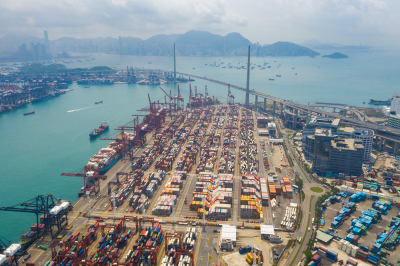Safety and operational efficiency
While ship crews at sea are entitled to mandated rest hours, the ship itself must remain operational 24/7. This necessitates efficient management of the crew's rest hours to ensure a constant presence of personnel in all situations, which can be quite challenging. Digital technology offers a streamlined solution to this complex task, simplifying crew scheduling and ensuring uninterrupted ship operations.
The Maritime Labour Convention (MLC) of 2006 lays out specific rules regarding the number of hours ship crews must be allowed to rest. In any 24-hour period, they are entitled to a minimum of 10 hours rest, and in any 7-day period the rest allowance has to be at least 77 hours (about 3 days). Furthermore, the hours of rest may be divided into no more than two periods, of which one has to be at least 6 hours. Rest hours, in this context, mean off-duty hours, and intermittent breaks are not included.
In most onshore occupations, it wouldn't be too difficult to comply with these stipulations. However, at sea things are different. The unexpected can always be expected. Weather conditions can suddenly change, fog can close in, congestion can arise in narrower channels, there can be a serious mechanical or system failure, and scheduling may have to be revised. It is imperative to have certified and well-trained personnel on hand to address these situations. Fatigue is a critical safety concern for both the crew and the vessel, highlighting the importance of maintaining alertness while on duty. This underscores the vital significance of managing the rest hour requirements.
In the realm of maritime operations, where the safety of the vessel, its crew, and the environment takes precedence, even minor errors can lead to grave consequences. Safety-critical maritime operations, such as navigation in busy shipping lanes, cargo handling and emergency response procedures, demand precision and sound judgment at all times. Mistakes in these areas can result in accidents, collisions, groundings, spills, or other incidents that pose significant risks to life, property, and the environment.

Smarter software solutions
Due to the risk linked to unrested crew members, various stakeholders require assurance regarding compliance with rest hour regulations. Ship owners are invested in this assurance because it directly impacts the safe and efficient operation of their vessels, which, in turn, safeguards their investments and ensures the well-being of their crew. Cargo owners, on the other hand, are concerned with compliance to guarantee the proper care and handling of their goods throughout the maritime journey, ultimately protecting their interests and reputation.
For those in charge of setting and monitoring work and rest hours, it can be complex and time-consuming task with little visibility. Fortunately, we now live in an age of digital enablement. Work and rest hours compliance software is now available to ensure that the planning, management and reporting of crew rest hours compliance in accordance with the regulations can now be efficiently handled.
ISF Watchkeeper is a leading example of such technology. It offers a consolidated data platform, accessible through an intuitive interface, that significantly eases the management of work and rest hours. This system is instrumental in ensuring optimal crew welfare and preventing costly delays at port state control. It simplifies the entire compliance process by effectively navigating through the complexities involved.
Beyond basic compliance, ISF Watchkeeper is capable of integrating additional vital information to provide a comprehensive overview. This level of detail allows for the creation of heat maps and in-depth analysis, helping to identify patterns of non-compliance and pinpoint underlying causes. These advanced features not only enhance the understanding of crew work and rest dynamics but also contribute to more informed decision-making, ensuring a safer and more efficient maritime operation.
Next to ISF Watchkeeper, LR OneOcean’s Cloud Fleet Manager (CFM) Crewing also offers capabilities in managing rest hours, contributing to MLC compliance. While CFM Crewing encompasses a broader spectrum of crew management functionalities, including crew rotations, training, and certifications, its rest hour management feature is also designed to ensure crews meet their requirements. This functionality, integrated within CFM Crewing's comprehensive crew management system, provides a holistic approach to crew operations, supporting both compliance and overall operational effectiveness in maritime logistics.
The gold standard
Solutions such as these represent the advancements that digital technology has brought to the maritime sector. The availability of informed and real-time data brings a level of situational understanding that was previously unattainable. Decision making thus becomes that much easier and entirely factually based. Nowhere is this more apparent than in the monitoring of crew hours and the planning of rest periods.
Software solutions such as ISF Watchkeeper; enable a gold standard of compliance with a host of regulations. These include, in addition to the MLC requirements, the International Convention of Standards of Training, Certification and Watchkeeping for seafarers (STCW), the Seafarers Hours of Work and the Manning of Ships convention (C180), the US Oil Pollution Act of 1990 (OPA 90), and the Oil Companies International Marine Forum (OCIMF) which relates to the application of requirements governing seafarers’ hours of work and rest, including Tanker Management and Self-Assessment (TMSA 3) guidelines and the OCIMF Ship Inspection Report programme.

